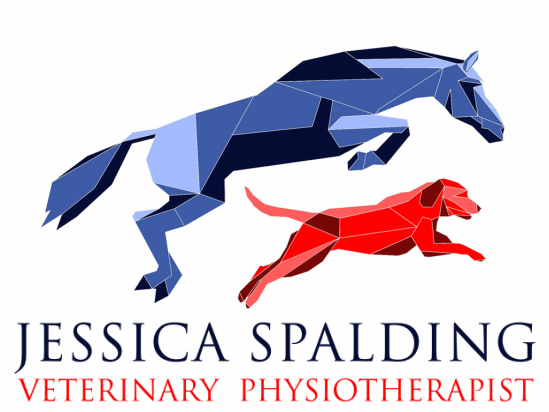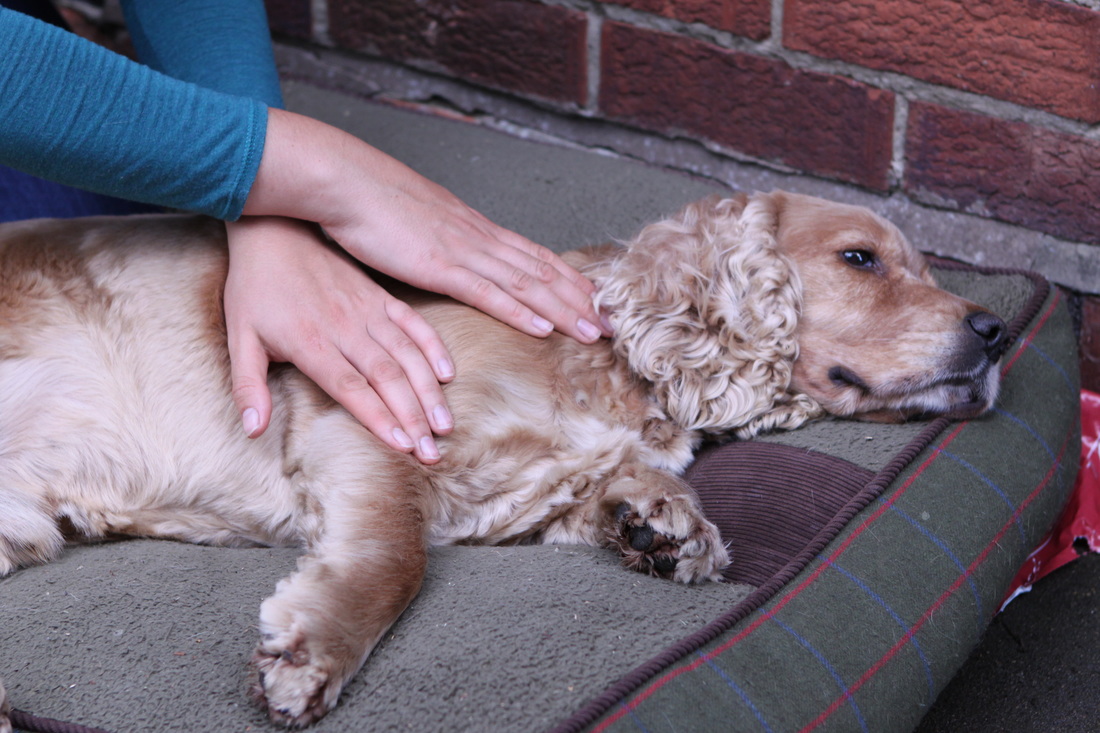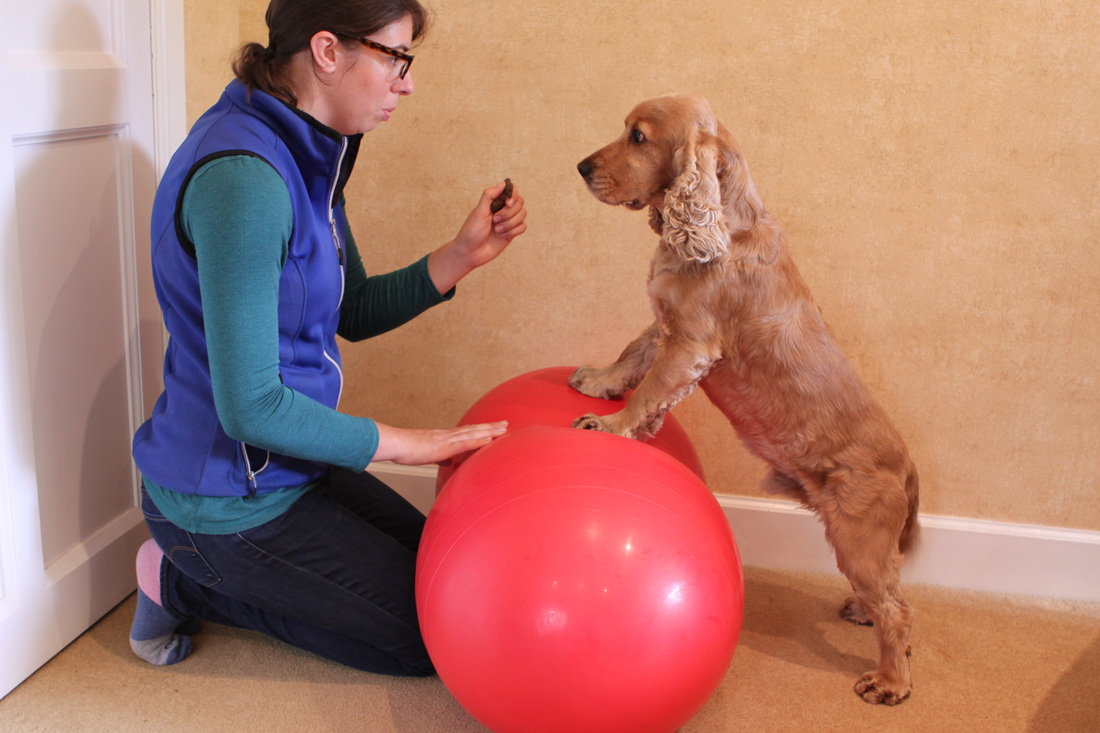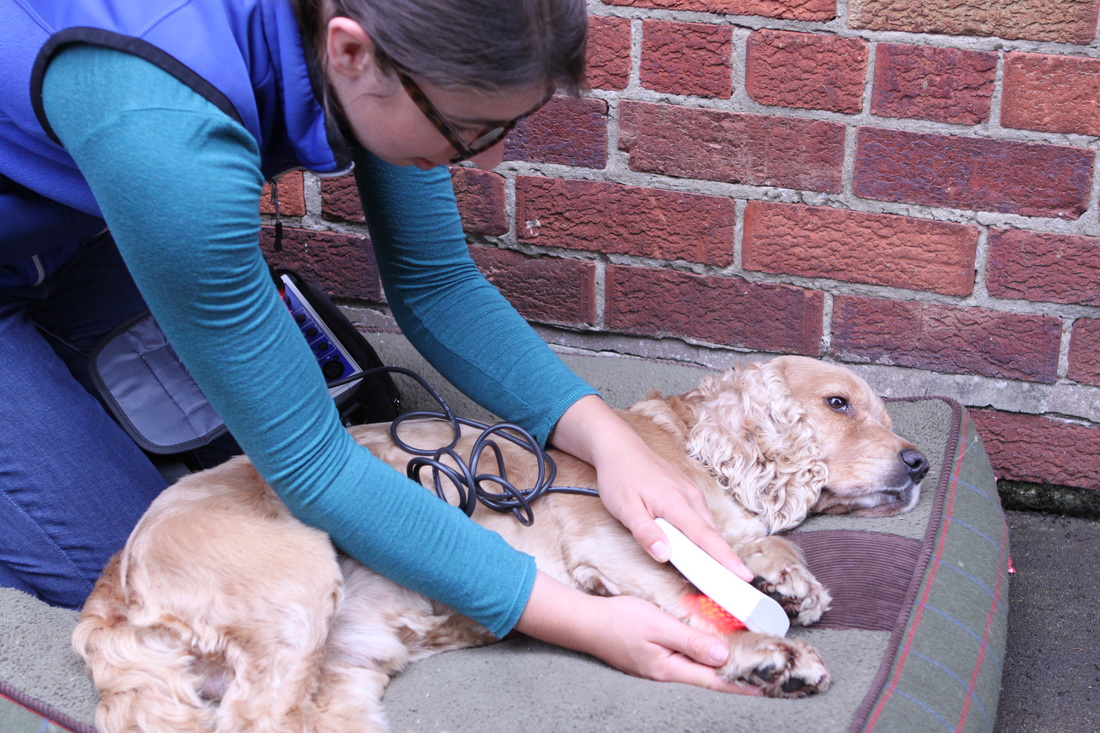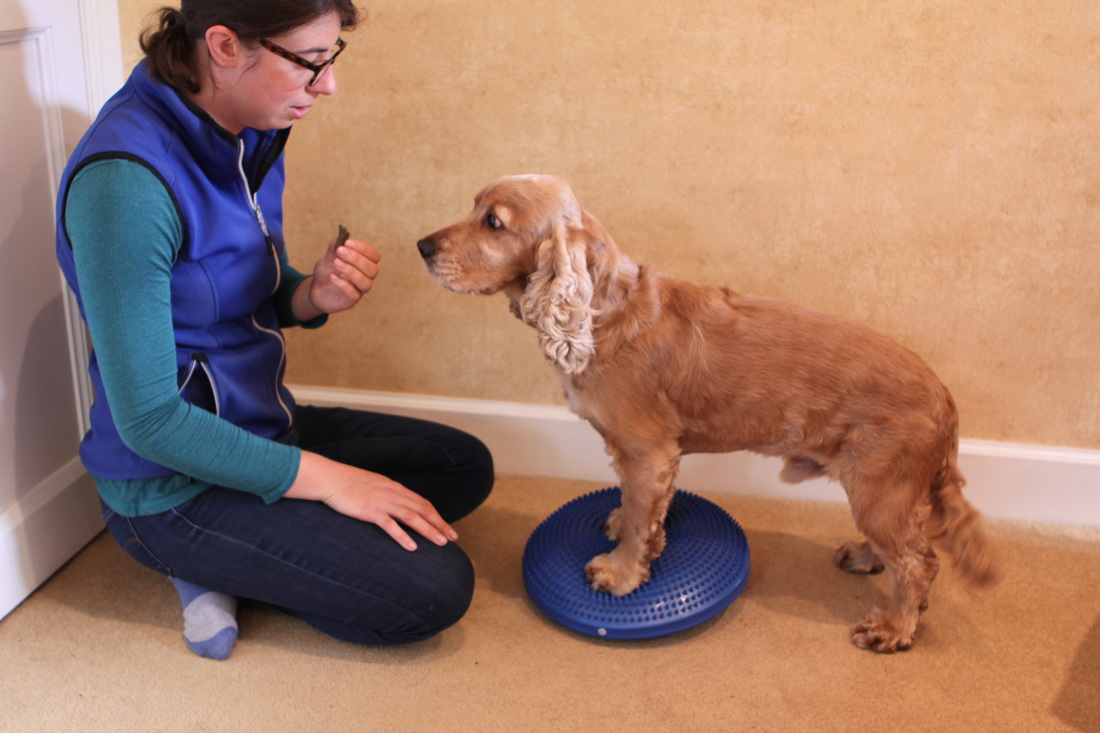Canine Physiotherapy
There are many conditions that can benefit from physiotherapy. This can vary from maintenance treatments keeping your pet functioning and comfortable while maintaining fitness, to the treatment of chronic conditions or injury. Working, sporting or competition dogs such as, police dogs, sheep dogs, gun dogs, or those compieting in fly ball, agility, obedience or heelwork often benefit from regular treatment to maintain fitness, improve performance, reduce asymmetries, reduce the risk of injury and maximise performance potential.
Every dog is an individual and so, working closely with yourself and your Veterinary Surgeon, under veterinary referral, a bespoke treatment programme can be formed to manage your pets condition alongside homework in the form of exercise prescription. This can be great fun for both you and your dog whilst maintaining their fitness.
It is often possible to locate asymmetries and potential problem areas in the early stages of dysfunction, before clinical symptoms present. In such cases it is possible to avoid loss of performance and the need for prolonged rest. With having a mobile physiotherapy service, all treatments can cater to training and competition commitments. Jess aims to be flexible in order to achieve maximum competition performance by working out a schedule of training and where best to slot in a physiotherapy session prior to a competition.
Some signs of potential injury can include:
Lameness
Signs of potential injury in working, sporting or competition dogs could include:
Common conditions that benefit from physiotherapy can include:
If you have any questions or queries please do not hesitate to contact Jess to discuss how physiotherapy may help your pet.
Every dog is an individual and so, working closely with yourself and your Veterinary Surgeon, under veterinary referral, a bespoke treatment programme can be formed to manage your pets condition alongside homework in the form of exercise prescription. This can be great fun for both you and your dog whilst maintaining their fitness.
It is often possible to locate asymmetries and potential problem areas in the early stages of dysfunction, before clinical symptoms present. In such cases it is possible to avoid loss of performance and the need for prolonged rest. With having a mobile physiotherapy service, all treatments can cater to training and competition commitments. Jess aims to be flexible in order to achieve maximum competition performance by working out a schedule of training and where best to slot in a physiotherapy session prior to a competition.
Some signs of potential injury can include:
Lameness
- Heat or swelling around joint
- Stiffness, particularly after exercise
- Muscle wastage
- Difficulty jumping in and out of the car or on furniture
- Behavioural changes
- Weight shifting
- Reluctance to exercise or go on walks
- Reactive to touch
- Tripping or toe scuffing
Signs of potential injury in working, sporting or competition dogs could include:
- Crooked sits
- Knocking poles
- Loss of concentration
- Avoiding an obstacle or exiting the weaves
- Shortened stride
- Slower round times
- Fidgeting in stays
Common conditions that benefit from physiotherapy can include:
- Reduced performance in competition
- Stiffness
- Weakness
- Obesity
- Age related degeneration
- Amputees
- Hip dysplasia
- Elbow displasia
- Muscle, tendon or ligament strains
- Muscle atrophy
- Wounds or muscle tears
- Osteoarthritis
- Cruciate ligament degeneration
- Medial patellar luxation
- Fracture repair
- Femoral head removal or hip replacements
- Spinal surgery
- Osteochondrosis Dissecans (OCD)
- Neurological conditions:
- Paralysis or recumbency
- Lumbosacral stenosis- Cauda Equina Syndrome (CES)
- "Wobbler syndrome"- Cervical spondylomyelopathy (CSM)
- Fibrocartilaginous embolic myelopathy (FCEM)
- Vertebral body malformation
- Discospondylitis
- Congenital degenerative myelopathy (CDRM)
- Intervertebral disc disease (IVDD)
- Pre and post surgical care
- Palliative care
- Trauma such as from being hit by a car or a fall
- Postnatal physiotherapy and massage
If you have any questions or queries please do not hesitate to contact Jess to discuss how physiotherapy may help your pet.
